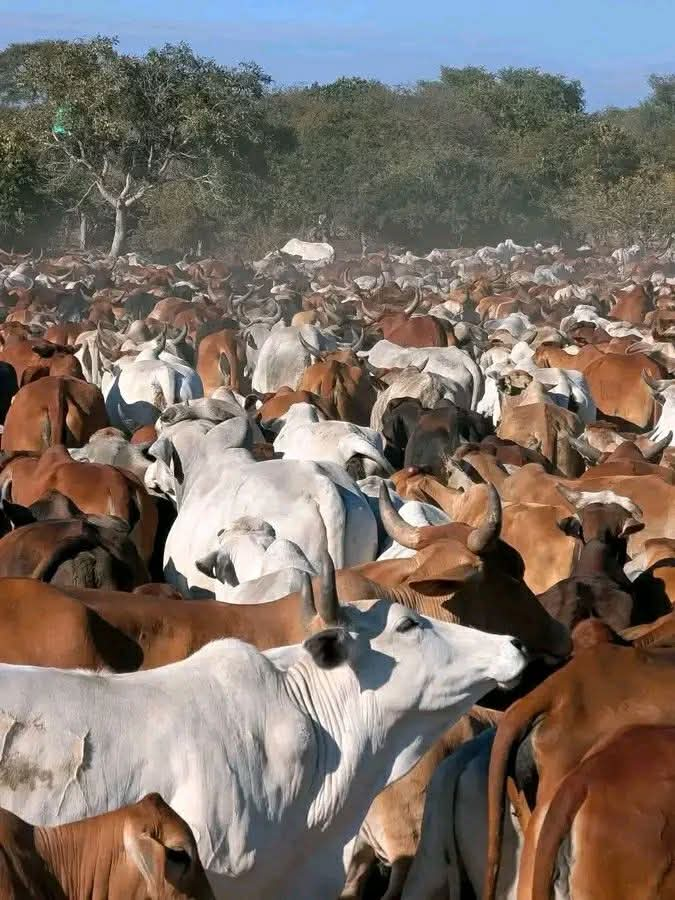The Ministry of Livestock Development has started moving about 30,000 cattle from Abuja city centre to the Kawu Grazing Reserve in Bwari Area Council. The reserve covers 9,000 hectares. To launch the project, the ministry commissioned a solar-powered borehole at the pilot site.
The Minister of Livestock Development, Idi Maiha, expressed joy at the event. He told herders that the ministry is working with different agencies to provide vital infrastructure. These include a 15-kilometre access road, solar boreholes, a dam, irrigation facilities, schools, healthcare, markets, electricity, and security.
According to the minister, the project aims to stop the free movement of cattle in Abuja’s city centre, as previously announced. He reaffirmed the government’s plan to make the Kawu Grazing Reserve a model for sustainable development.
Maiha explained that the reserve will host more than 10,000 herders and their families. He described the project as a promise fulfilled, saying it would bring water, pasture, and social amenities to the community.
He inspected the only existing dam in the area, which will now be used to support dry-season farming and pasture cultivation. He also launched the first borehole in the reserve. The community celebrated, with women singing and elders expressing their joy. The minister added that more boreholes would be built for both human and animal use.
Maiha also demonstrated seed and pasture cultivation. He distributed Napier grass for feeding livestock and assured herders that farming support would continue. He stressed that the reserve is “coming alive” through such efforts.
The ministry will also work with other agencies. The Rural Electrification Agency will bring solar power. UBEC will support schools. The Ministry of Health will provide primary healthcare. The Ministry of Water Resources will rehabilitate the dam. Security agencies will also be deployed.
The minister added that a 15-kilometre road will be rehabilitated in collaboration with the Federal Capital Territory Administration and the World Bank’s Rural Access and Agricultural Marketing Project. A veterinary clinic will also be set up under the Livestock Productivity Resilience Project (L-PRES).
He stressed that once these facilities are in place, the reserve will attract investment in milk processing, meat production, and manure manufacturing, turning it into an economic hub. He called it a practical step in President Tinubu’s “Renewed Hope Agenda.”
Dr. Sanusi Abubakar, Director of L-PRES, assured that the planned infrastructure will be delivered. He said the focus will be on water, pasture, and animal health to reduce conflicts between herders and farmers.
The Senior Special Adviser to the President on Livestock Development, Idris Abiola-Ajimobi, noted that ₦13 billion was allocated for livestock development in the 2024 budget. He added that more funding is being secured from international partners. The pilot project in Kawu will serve as a model before expansion to other grazing reserves nationwide.
Khalil Mohammed Bello, National President of the Kulen Allah Cattle Rearers Association of Nigeria (KACRAN), welcomed the project. He said herders are ready to move to the Kawu Grazing Reserve and fully support the government’s initiative.


